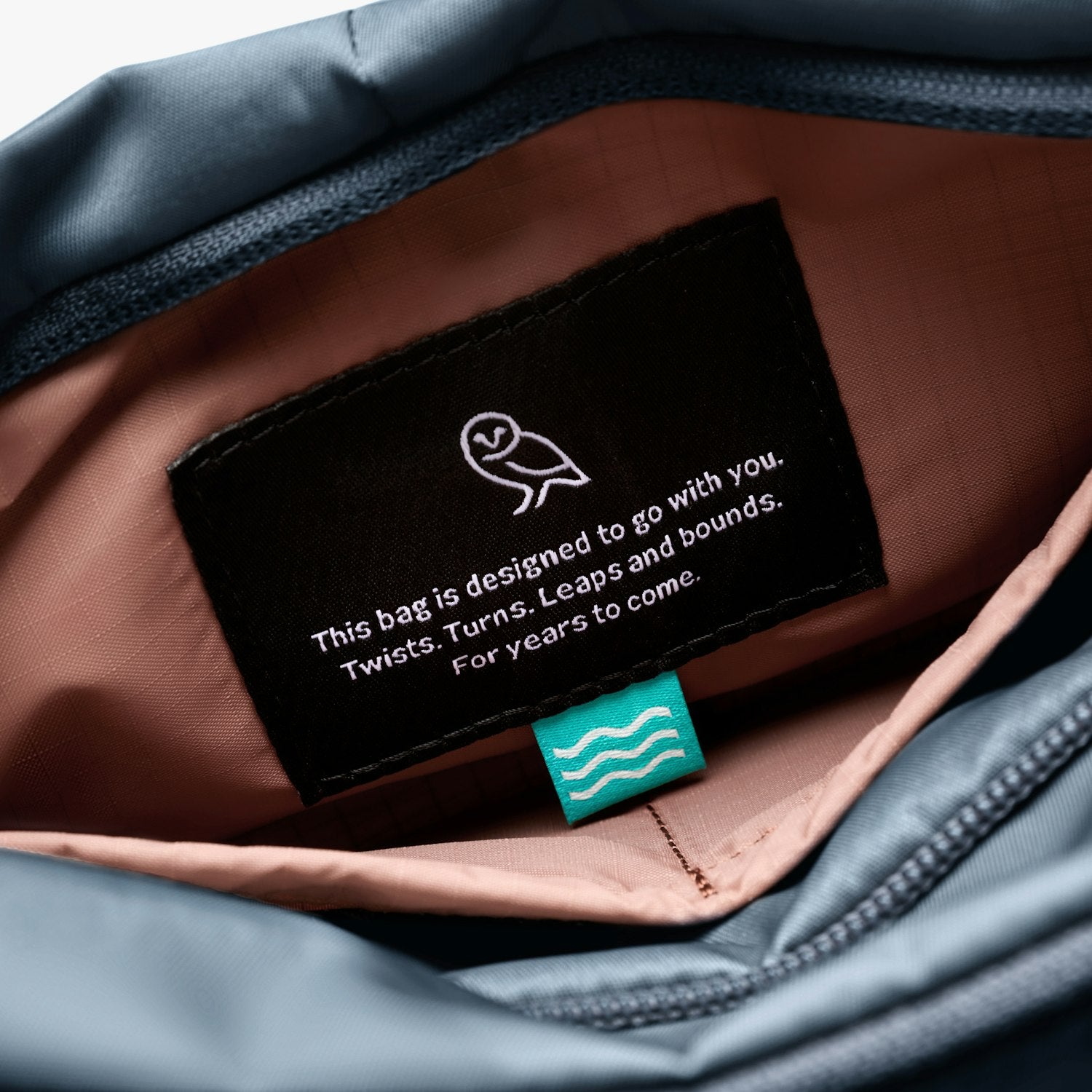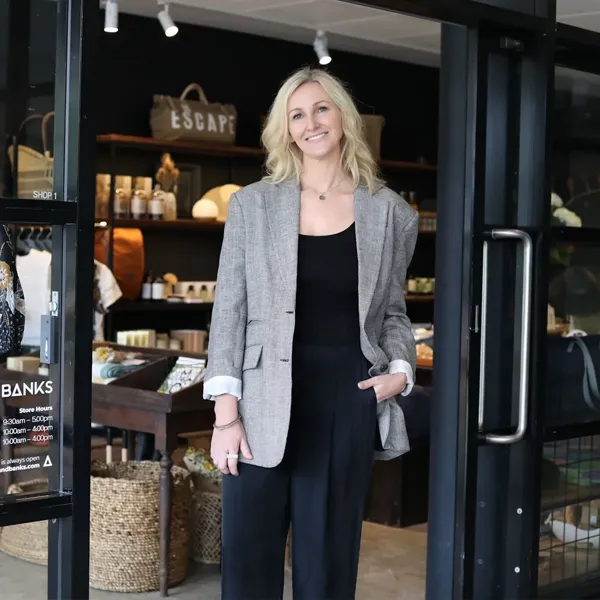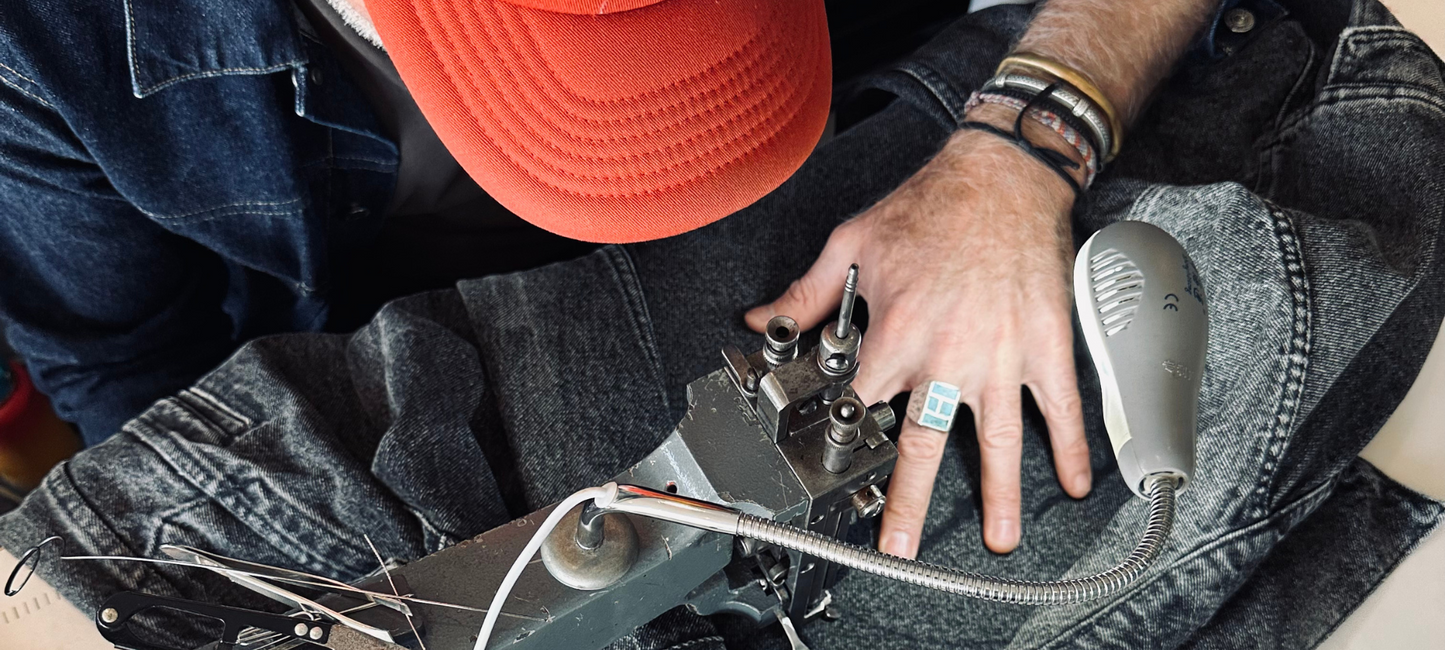The Inconvenience of Convenience
By Niccii Kugler
There are certain things in life that we all know we should do. Brush and floss our teeth twice a day, have at least three months’ worth of living expenses in your savings account, eat 2-3 cups of vegetables every day, be kind to others, recycle. Like I said, these are things we know we should do, but actually doing them is another story.
We all know that we should do things that help (and not harm) our environment. We know we should support local artisans, boycott companies who do not invest in ethical supply chains, and avoid plastics in favour of biodegradable or sustainable materials. And yet, we don’t.
Why is that?
Modern life keeps us busy
The fact is that life just got busy. Over the past decade especially, things have sped up. Deadlines have been brought forward. Stress levels are through the roof. Everyone expects everything almost instantly, and patience has become a thing of the past. That’s the price you pay for having the world at your fingertips.
These days, it’s all about convenience. From groceries being delivered and self-service checkouts to single-use containers and clothing you can order and receive the same day. And trust me, I get it. As a business owner, consultant and mother of two, I understand a little bit about the need for convenience. One of the reasons I started Nash + Banks is because I realised it was nearly impossible to easily find goods that were natural, local, sustainable, ethically made and affordable.
It’s hard to be an ethical and sustainable consumer, so we make sacrifices here and there, and that’s ok. Or is it?
Are humans inherently lazy?
More and more, brands from all price-points and sectors are showing off their eco-credentials and trying to prove to consumers that they’re taking sustainability very seriously. All of this is fantastic news, but for one thing - brands are underestimating the importance of price and convenience.
Let me be clear - people do care about the climate. However, studies have shown that we’re not willing to sacrifice in other areas to buy sustainable products.
“We’ve found evidentiary proof that sustainability is important to consumers of all ages across geographies and cultures, but sustainability issues collide with purchases that bring enormous pleasure and help improve wellbeing.”
- Dr. Rebecca Swift, Global Head of Creative Insights, Getty Images.
According to landmark research from Getty Images, 81% of people see themselves as eco-friendly, and 92% of respondents believe the way we treat our planet now will have a large impact on the future. Despite this, only 50% say they only buy products from brands that try to be eco-friendly. Only those who identified as being passionate about sustainability were willing to pay more to support environmentally-responsible companies, and only up to 15%.
This issue is not limited to retail either. Market research from The Future of Food indicates that convenience is the uncontested number one purchase driver in the food sector. In fact, studies have found that the “convenience factor” (which refers to the simplicity and speed of purchase and consumption) is usually the deciding factor between two products.
Convenience has tempted us away from what is sustainable and ethical
“We are jeopardizing our future by not reining in our intense but geographically and demographically uneven material consumption… humanity is not taking the urgent steps needed to safeguard our imperilled biosphere.”
- World Scientists’ Warning to Humanity: A Second Notice (Ripple et al. 2017)
From the smallest of habits and everyday conveniences have come some of our most entrenched ecological downfalls. Things like straws, plastic bottles, same-day delivery and low prices are quick and easy. Unfortunately, quick and easy usually means bad for the environment. I’m not just talking about the harsh chemicals and plastics in products destined for the landfill, but the packaging transport and energy it takes to get it to your door as well.
Despite all our best intentions, convenience keeps winning over sustainability.
One of the best examples of this is fast fashion. We all know that fast fashion doesn’t trade on its sense of ethics or sustainability. Its purpose is to supply trend-led clothing at low prices. That’s the place in the market that it wants to fill. Then we have consumers under the age of 30 - the people who care the most about corporate responsibility, sustainability and ethics, and are likely to be the most vocal in their support (or boycott) or brands they deem unethical. And yet, the most proliferate consumers of fashion are… you guessed it. Consumers under the age of 30. Why are we, as consumers, compromising our morals?
How can we get comfortable with rejecting convenience?
As tempting as it is, we can’t just blame the corporations for wrecking the environment. They’re simply meeting the demand from the general population. Everyone wants quick and cheap, so that’s what they do. Even if a company comes under fire and attracts dislike for doing so, many are still willing to accept this as collateral. And why not? Even though Wal-Mart is sued 17 times a day, it’s still one of the world’s largest companies in terms of revenue.
Even around the home, we choose convenience over the environment. How often do you use the dryer rather than sun-drying? How much rubbish do you send to a landfill which could be used in the garden? Do you throw away your old clothes rather than repurposing them?
I'm interested in the idea of habits. Of what we think will be too hard to forgo because it makes our life easier. Even when we know our habits aren’t great, we still find them hard to break. This is because all habits, even bad ones, provide some sort of benefit in our lives. For some, the reward is a hit of dopamine, the feel-good chemical that gives you a little boost when you achieve specific tasks like buying clothing online. For others, it’s the benefit of repetition.
Repetition reinforces repetition
Habits can develop through repetition. Whether it’s buying plastic toothbrushes in the supermarket or grabbing a cup of coffee before work, if you do something enough times, you can start to do it on autopilot without even thinking about it. According to Ann Graybiel, a researcher at MIT, habits are “encoded into the structures of our brain, and that’s a huge advantage for us”. That’s because when these behaviours become automatic, we can then focus our attention on other, more complex things.
Opting for convenience is a habit developed through repetition. It’s not a bad habit intrinsically, but that’s why it can be hard to change as well. Choosing sustainably and ethically doesn’t provide you with the same dopamine hit as buying the latest new product on sale. We see no immediate or visible benefits to the environment when we recycle, choose sustainably, or bring a bag. And so, we must first break our old habits of convenience in order to build the neural pathways for a sustainable new habit.
Luckily, taking the step away from convenience often isn't as hard as you think it will be (after COVID, I’m sure we can adjust to anything), and there are so many little things you can do to transition to plastic-free, live an eco-friendly lifestyle, act more sustainably. What matters is that you do two things: consciously make a commitment to choose values over convenience and hold yourself accountable.
← Older post Newer post →









